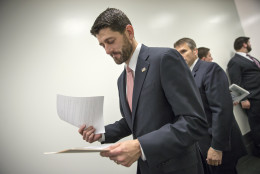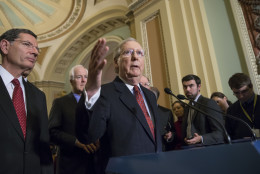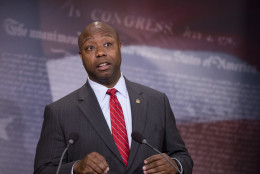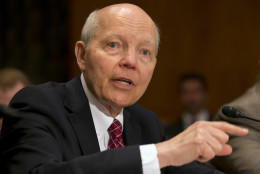Unions
-
President Barack Obama on Friday signed an Executive Order authorizing a 1.3 percent pay raise.
December 18, 2015 -
The omnibus spending bill includes money for the FBI’s new headquarters, 10 years of credit monitoring services for OPM breach victims and much more for federal employees.
December 17, 2015 -
The American Federation of Government Employees announced its endorsement of Hillary Clinton Thursday, after the candidate won in a national poll of its members "by nearly a 2-1 margin."
December 10, 2015 -
While a continuing resolution seems likely in the waning days of the short-term spending bill the government is currently operating under, federal employees once again have found themselves looking over their shoulders for any sign of a shutdown.
December 10, 2015 -
Sen. Tim Scott (R-S.C.) has introduced a bill that would exempt the IRS from unionizing. The bill would largely affect the National Treasury Employees Union, which represents nearly 90,000 IRS employees.
November 11, 2015 -
The Council recommended adding Virginia Beach, Virginia and Burlington, Vermont to the list of 47 separate locality pay areas for 2017. It also suggested changing the criteria for establishing and adding new locality pay areas.
November 06, 2015 -
Customs and Border Protection would be another loser in the legislation before the House. Customs user fees would go to unrelated transportation projects instead.
November 03, 2015 -
House Oversight and Government Reform Committee Chairman Jason Chaffetz (R-Utah), and 18 other members of his committee, introduced a resolution calling for IRS Commissioner John Koskinen's impeachment. Koskinen said his agency has made some progress in improving accountability and communication in the wake of IRS scandals.
October 27, 2015 -
The 9-year struggle to fill federal jobs in North Dakota's oil-boom towns offers a stark example to the rest of the government of just how hard it can be to keep federal workers when private employers beckon.
October 22, 2015 -
Members of AFGE Local 17 detail allegations that union members have levied against their supervisors in a report to Veterans Affairs Secretary Bob McDonald.
October 16, 2015 -
Cato says the average salary and benefits of the federal workforce, which consists of 2.1 million people, are 78 percent higher than the average salary of 111 million people in the private sector.
October 07, 2015 -
The Office of Personnel Management released updated furlough guidance. The update includes 15 new additions and revisions for agencies and federal employees and what to do in case of a government shutdown.
September 30, 2015 -
As the deadline to pass a federal budget nears, agencies are starting to send out instructions to employees on what to do in case of a government shutdown.
September 25, 2015 -
Congressional and budget experts say House Speaker John Boehner's decision to resign opens the door for a short-term continuing resolution that could be voted on early next week.
September 25, 2015 -
A new plan that would keep the government open through Dec. 11 is beginning to emerge. Senate Majority Leader Mitch McConnell (R-Ky.) introduced a clean, short-term continuing resolution that does not include language that would defund Planned Parenthood.
September 24, 2015












